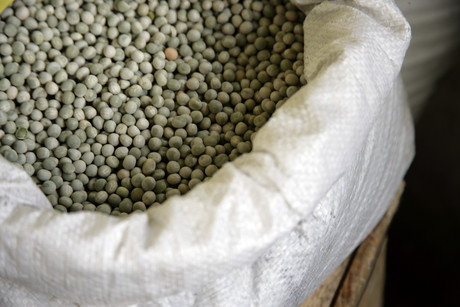How ISO standards can increase trust in the quality of your food products abroad
Thursday, 20 April, 2017

In much of the developed world, there is a great deal of mistrust surrounding the food industry and food safety in general.
If you’re looking to export food to other countries, it’s essential to take local consumer opinion of the food industry into account. Here, we’ll look at how food exporters can increase trust in the safety of their food using ISO 22000, and how ISO 9001 can help prove your food products adhere to high quality standards.
Consumer trust in food quality is low around the world
Australia and New Zealand are uniquely positioned in the world, with a high level of consumer trust in local food supplies. However, citizens realise that food security is a major issue, and elsewhere in the world, the level of trust in food producers remains low.
In the USA, for example, the percentage of consumers who trust food companies is at a mere 34%, despite being up from 19% back in 2012. Similarly, research by Mintel reveals that consumers in the UK also lack trust in the food and drink industry, with few believing either retailers or manufacturers have complete information about their supply chains.
Thanks to Australia and New Zealand’s reputations as premier food exporters, food manufacturers are in a strong position to fill the void in trust left by local producers. However, reputation is not enough — evidence needs to be given to help assure to international buyers that as suppliers, your products are safe.
This is where ISO 22000 comes in, which is an internationally recognised food safety management system, designed to keep food safe from producer to consumer.
How does ISO 22000 help?
ISO 22000 helps food producers improve communications along their supply chains, delivering safe and healthy food to your customers. This is done in three stages. The first is to document all of your processes to create a Food Safety Management System. This ensures all management, planning and day-to-day activities are conducted with food safety in mind.
Next, prerequisite practices are put into place. This involves anything to do with your production environment, ensuring it is suitable for making food safely, and may cover the layout of your factory or production facility, as well as personal hygiene for your team. ISO 22000 requires that any hazard that may be reasonably expected to occur in the food chain is identified and evaluated.
Finally, the standard includes a Hazard Analysis and Critical Control Plan (HACCP). This is especially important for companies involved in food manufacturing or processing to eliminate food safety hazards in the products, which might include biological or chemical contamination, or physical hazards.
The standard is especially valuable to food manufacturers and distributors as a solution to offer assurance to its customers that they perform to the highest standards, taking food safety seriously.
World-class quality assurance
While ISO 22000 proves that your products adhere to the highest standards of food safety, ISO 9001 offers proof that your food products are produced to a high standard. This standard can be used by food producers to streamline processes, reduce errors, free up management time and improve internal communications, all with the objective of creating consistently better products.
ISO 9001 works similarly to ISO 22000 in that it establishes a management system for your business, documenting processes to be followed at all stages of production. Because this reduces the amount of errors in production, your customers can be sure of the consistent high quality of your products.
On top of that, it’s a great help for highlighting your ability to deliver as a supplier. Many larger companies looking for white label suppliers for their products will run a tender process to determine who should supply them. ISO accreditation is a great way to stand out from the competition, giving evidence that your product is not only of superior quality, but also that you’ll be consistent in supplying good-quality products.
Wrapping up
Expanding into overseas markets can be difficult, but food producers in Australia and New Zealand are well placed to do so if they make use of the opportunities that ISO accreditation can offer them to prove their products are not only high quality, but safe too.
Supermarkets inquiry: mandatory code of conduct recommended
The interim report, released Monday, says that the voluntary code of conduct should be mandatory,...
Australia's food security inquiry, report released
The Australian Food Story report is the result of a parlimentary inquiry into the vulnerability...
2024 Product of the Year winners unveiled
The 2024 Product of the Year winners include food and beverage brands such as Coles, Woolworths,...












